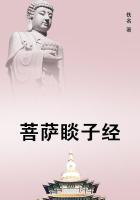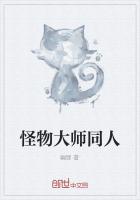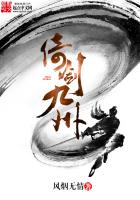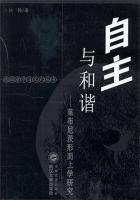At Frosinone, in Latium, about half-way between Rome and Naples, the dull monotony of life in a provincial Italian town is agreeably broken on the last day of the Carnival by the ancient festival known as the Radica. About four o'clock in the afternoon the town band, playing lively tunes and followed by a great crowd, proceeds to the Piazza del Plebiscito, where is the Sub-Prefecture as well as the rest of the Government buildings. Here, in the middle of the square, the eyes of the expectant multitude are greeted by the sight of an immense car decked with many-coloured festoons and drawn by four horses. Mounted on the car is a huge chair, on which sits enthroned the majestic figure of the Carnival, a man of stucco about nine feet high with a rubicund and smiling countenance. Enormous boots, a tin helmet like those which grace the heads of officers of the Italian marine, and a coat of many colours embellished with strange devices, adorn the outward man of this stately personage. His left hand rests on the arm of the chair, while with his right he gracefully salutes the crowd, being moved to this act of civility by a string which is pulled by a man who modestly shrinks from publicity under the mercy-seat. And now the crowd, surging excitedly round the car, gives vent to its feelings in wild cries of joy, gentle and ****** being mixed up together and all dancing furiously the Saltarello. A special feature of the festival is that every one must carry in his hand what is called a radica ( root), by which is meant a huge leaf of the aloe or rather the agave. Any one who ventured into the crowd without such a leaf would be unceremoniously hustled out of it, unless indeed he bore as a substitute a large cabbage at the end of a long stick or a bunch of grass curiously plaited. When the multitude, after a short turn, has escorted the slow-moving car to the gate of the Sub-Prefecture, they halt, and the car, jolting over the uneven ground, rumbles into the courtyard. A hush now falls on the crowd, their subdued voices sounding, according to the description of one who has heard them, like the murmur of a troubled sea. All eyes are turned anxiously to the door from which the Sub-Prefect himself and the other representatives of the majesty of the law are expected to issue and pay their homage to the hero of the hour. A few moments of suspense and then a storm of cheers and hand-clapping salutes the appearance of the dignitaries, as they file out and, descending the staircase, take their place in the procession. The hymn of the Carnival is now thundered out, after which, amid a deafening roar, aloe leaves and cabbages are whirled aloft and descend impartially on the heads of the just and the unjust, who lend fresh zest to the proceedings by engaging in a free fight.
When these preliminaries have been concluded to the satisfaction of all concerned, the procession gets under weigh. The rear is brought up by a cart laden with barrels of wine and policemen, the latter engaged in the congenial task of serving out wine to all who ask for it, while a most internecine struggle, accompanied by a copious discharge of yells, blows, and blasphemy, goes on among the surging crowd at the cart's tail in their anxiety not to miss the glorious opportunity of intoxicating themselves at the public expense. Finally, after the procession has paraded the principal streets in this majestic manner, the effigy of Carnival is taken to the middle of a public square, stripped of his finery, laid on a pile of wood, and burnt amid the cries of the multitude, who thundering out once more the song of the Carnival fling their so-called roots on the pyre and give themselves up without restraint to the pleasures of the dance.
In the Abruzzi a pasteboard figure of the Carnival is carried by four grave-diggers with pipes in their mouths and bottles of wine slung at their shoulder-belts. In front walks the wife of the Carnival, dressed in mourning and dissolved in tears. From time to time the company halts, and while the wife addresses the sympathising public, the grave-diggers refresh the inner man with a pull at the bottle. In the open square the mimic corpse is laid on a pyre, and to the roll of drums, the shrill screams of the women, and the gruffer cries of the men a light is set to it. While the figure burns, chestnuts are thrown about among the crowd. Sometimes the Carnival is represented by a straw-man at the top of a pole which is borne through the town by a troop of mummers in the course of the afternoon. When evening comes on, four of the mummers hold out a quilt or sheet by the corners, and the figure of the Carnival is made to tumble into it. The procession is then resumed, the performers weeping crocodile tears and emphasising the poignancy of their grief by the help of saucepans and dinner bells. Sometimes, again, in the Abruzzi the dead Carnival is personified by a living man who lies in a coffin, attended by another who acts the priest and dispenses holy water in great profusion from a bathing tub.












